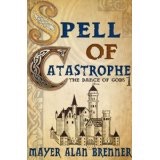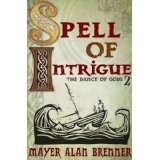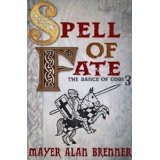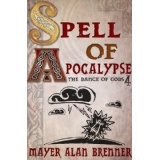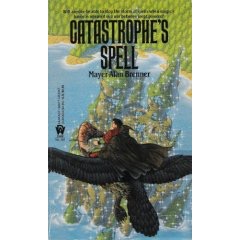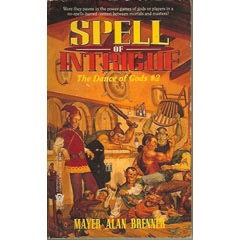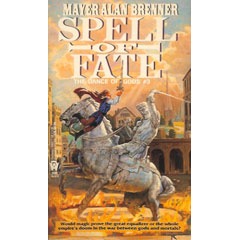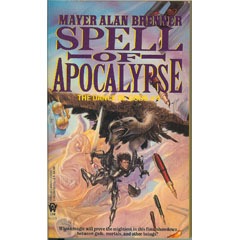As long as I was diving back into The Dance of Gods, and especially Spell of Catastrophe, which I haven't dared to read in almost twenty years, I thought it might be amusing to use the opportunity for some reminiscences about the experience and some of what I was thinking at the time, and perhaps the influences that led to particular decisions, too. A narcissistic exercise, I'm sure, but it's not as though I expect a whole lot of people to be paying attention. On the other hand, the web is an unpredictable and often magical place, and a little ego is probably mandatory for an exercise such as this, anyway...
As I said, I hadn't opened any of these books in a long time. I've noticed that many writers - perhaps most - don't enjoy revisiting old works, unless there's a reason to market them again and often not even then. You've moved on, and whether you've gotten better or fallen off, why would you remind yourself of where you used to live, class reunions notwithstanding. With Dance of Gods, the resounding commercial failure left me soured on the books themselves, along with the fact that once the books were out of my system, so to speak, I had thought that my tastes in fiction had moved on to the point that I wouldn't like those kinds of things any more, regardless of who had written them.
When I thought of dipping my toe in the waters of this experiment, then, of trying to rehabilitate these books for another era, it was done very gingerly. So it was with no little surprise that I discovered, in re-reading Chapter 1, and then especially Chapter 2 and Chapter 4, that it wasn't half-bad after all. In fact, I thought it held up pretty well, much better than I had expected (and feared), and that in many ways what I had hoped I was doing twenty years ago came through more clearly now, in a world where Glen Cook







So I hope that if you're reading this (and it) that you'll feel similarly kindly toward the story, too.
